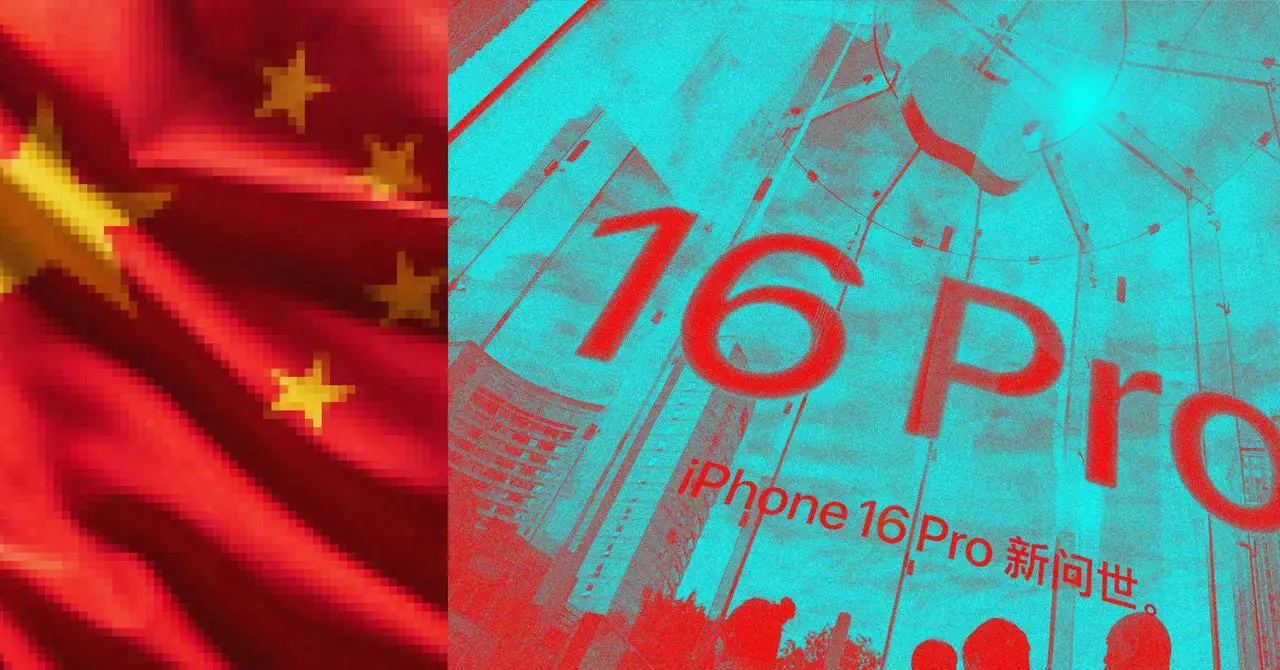In recent years, the interplay between Western technology firms and Chinese regulations has become increasingly complicated, particularly concerning artificial intelligence (AI). Amid stringent oversight and a preference for domestic innovations, companies like Apple face an uphill battle in navigating this landscape. The divergence in regulatory frameworks highlights a broader existential question for these firms: how to sustain a profitable presence in a market while adhering to local demands that may conflict with their foundational principles.
The Authoritarian Grip on AI Development
China has cultivated an advanced regulatory environment that significantly impacts the function and development of AI technologies. The emphasis on control is exemplified by the requirement for algorithms, including those used in generative AI, to be registered with the authorities. This not only requires companies to share substantial details about their technological underpinnings but also extends to a wider framework where compliance is not optional. As pointed out by industry experts, the stipulations are extensive, and noncompliance carries steep consequences.
This regulatory oversight, while ensuring state-sponsored growth in technology, creates a chilling atmosphere for foreign companies. Regulatory bodies impose mandates that can be characterized as vague censorship requirements, compelling tech firms to adhere to a prescribed political narrative. As illustrated in recent analyses, companies are effectively navigating a minefield of expectations where the guidelines dictate that AI systems must avoid generating content deemed politically sensitive or socially disruptive. Such conditions compel a substantial reevaluation of strategies for Western enterprises looking to leverage China’s vast technological landscape.
The narrative of China transitioning from a consumer of technology to a global leader in numerous tech fields is remarkable. What was once a cautious entry into the AI domain has transformed into a commanding position where Chinese firms, guided by government policy, are rapidly innovating and deploying AI solutions. As clarified by analysts like Tan, China’s role reflects a significant shift—moving from invitation to dominance in the technology sector, especially in AI applications. This monumental change complicates the dynamics for companies like Apple, which must navigate an environment where the rules, framing, and context are being dictated by an emerging power.
Challenges for Foreign Tech Companies
For Apple, the challenge lies in the delicate balance between compliance and ethical considerations. The company often faces the dilemma of adhering to local laws while maintaining its global reputation for user privacy and freedom of information. Historically, Apple has made concessions—ranging from the censorship of apps in the App Store to accommodating local regulations requiring data storage within China. However, the introduction of generative AI, particularly in products like Apple Intelligence, raises the stakes.
This isn’t merely a matter of adjusting to local norms; there’s a significant risk that Apple could inadvertently become an instrument of the ruling regime’s narratives. By adopting localized AI that aligns with the Communist Party’s demands, Apple opens itself up to accusations of complicity. This phenomenon reflects a broader trend where technology firms may indeed serve state goals, rather than simply facilitating innovative solutions.
In the face of these complexities, the future remains uncertain for Apple and its peers. As market forces mingle with regional regulations, tech companies must strategize effectively. There’s an emerging consensus that firms may need to develop compartmentalized approaches to their services, distinguishing between offerings in China and the rest of the world. This duality could serve as a buffer against allegations of too closely aligning with state objectives, while also catering to a growing domestic audience eager for technological advancements.
To thrive in an increasingly regulated environment, technology companies must embrace transparency and adaptability. The dilemma for firms like Apple is twofold: they must remain competitive within China’s lucrative marketplace and uphold their fundamental ethos—an inherently challenging proposition. As the landscape continues to evolve, it remains to be seen whether the drive for profit can coexist harmoniously with the principles of free expression and innovation. The ongoing dialogue around AI, regulation, and corporate responsibility will undoubtedly shape the trajectory of tech in China for years to come.


Leave a Reply